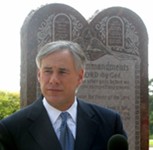Community Colleges Bestow Dunce Cap on Perry
Community-college presidents and allies launch barrage of explosive verbiage on Perry after he vetoes $154 million in school funding
By Lee Nichols, Fri., July 27, 2007
The debate revolves around health benefits to college employees. In his own editorial published above Kinslow's (and in other newspapers around Texas), Perry defended his veto, asserting that state law requires that community-college employees paid with state funds also may have their health benefits paid by the state, but those salaried through local funds must get their coverage from local monies. "Despite the clarity of the law on this matter, community colleges have pursued a distorted interpretation by arguing that any employee who is eligible in theory for a state-funded salary is entitled to state-funded health benefits even if they are not paid by the state," Perry wrote.
But even stronger was his comment when he initially delivered the veto in June: "To get money for these employees, community colleges falsified their appropriations requests." Community-college administrators responded fiercely. "If the governor truly believes that Texas' community college[s] committed fraud against the state, then he has a duty to prosecute all 50 colleges," wrote Amarillo College President Steven Jones in the Amarillo Globe-News. "But this is about politics -- not about falsifying records." Jones charges that "the governor has a different interpretation of the law -- different, I might add from that of the legislators who wrote the law and the state agency responsible for collecting our data."
That claim is borne out by another op-ed by state Sen. Judith Zaffirini, the chair of the Senate Higher Education Subcommittee and vice chair of the Senate Finance Committee. "Having attended every budget hearing, I know that community-college officials submitted full and accurate information in their budget requests. That the governor would accuse them of falsehood is beyond comprehension. The [L]egislature in good faith chose to fully fund community college employee benefits with general revenue because we understand that community colleges are under-funded and over-burdened."
Even Congress might join the battle. Rep. Chet Edwards, D-Waco, hinted that federal funding cuts might come in retaliation: "The annual higher education reauthorization appropriation for grants is certainly something that can be looked at," he told the Midland Reporter-Telegram.
Asked what the veto meant for ACC, Kinslow told the Chronicle that it resulted in a $7.6 million shortfall in 2008 and 2009 that forced a $500,000 cut in facilities maintenance and a $1 million cut in "institutional advancement," specifically the attempt to build more facilities to meet the state's Closing the Gaps initiative, which calls for upping community-college enrollment by more than 600,000 by 2015. The rest will be made up through a fee increase for students.
"[C]an you imagine Texas in 10 years?" Kinslow said in his editorial. "Companies will relocate, unemployment will increase, the economy will be hit hard, and quality of life will suffer. Taxes will go up -- not for education but for social services."
"The grim reality is that to make up for this lost funding, community colleges will either have to raise local property taxes, increase tuition, reduce services, or, sadly, do all three," wrote Zaffirini. "Any of these options negatively will affect their ability to serve students who typically have the fewest resources to attend college. The worst result is that many students may be forced to drop out of college because of the governor's actions."
Got something to say on the subject? Send a letter to the editor.










